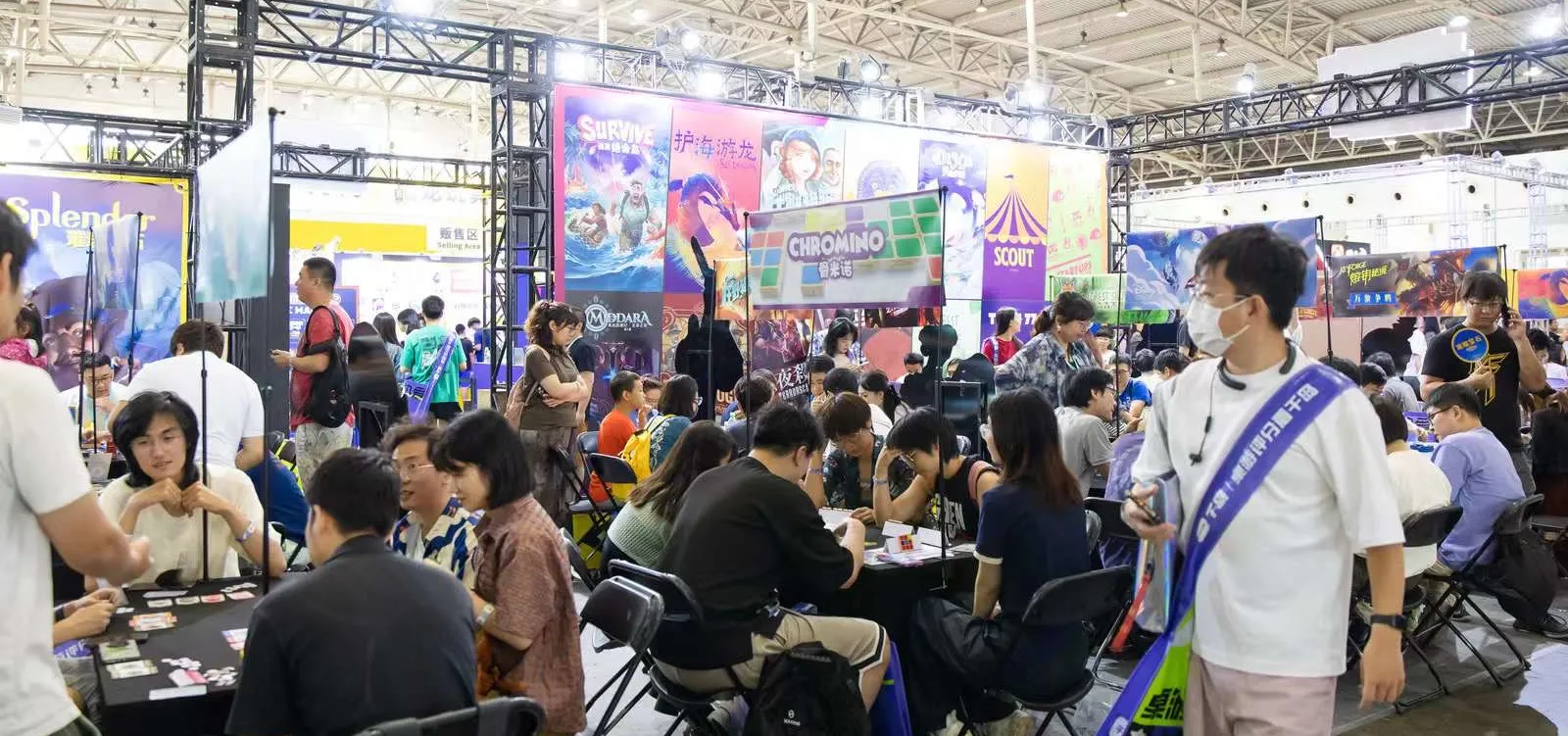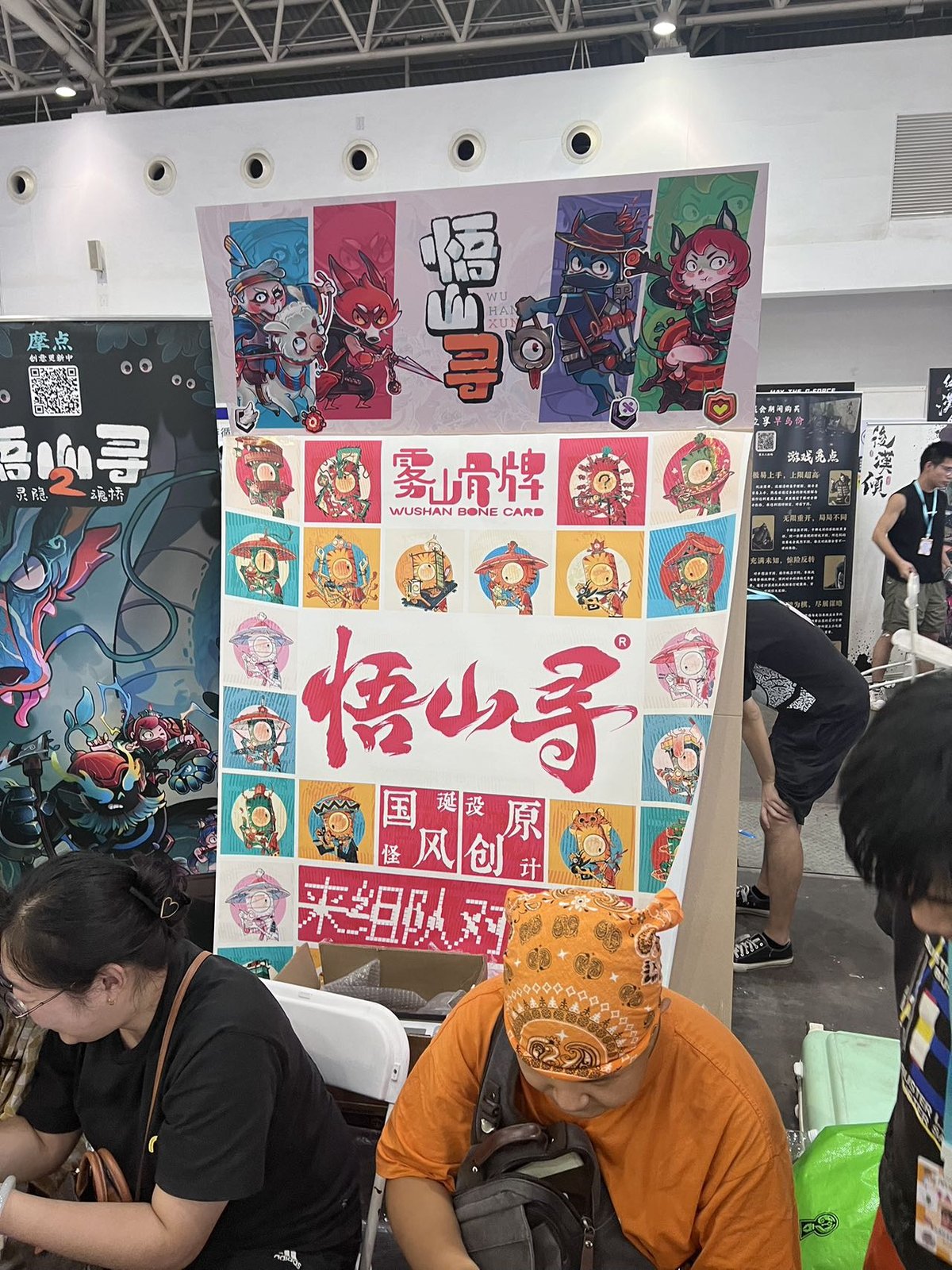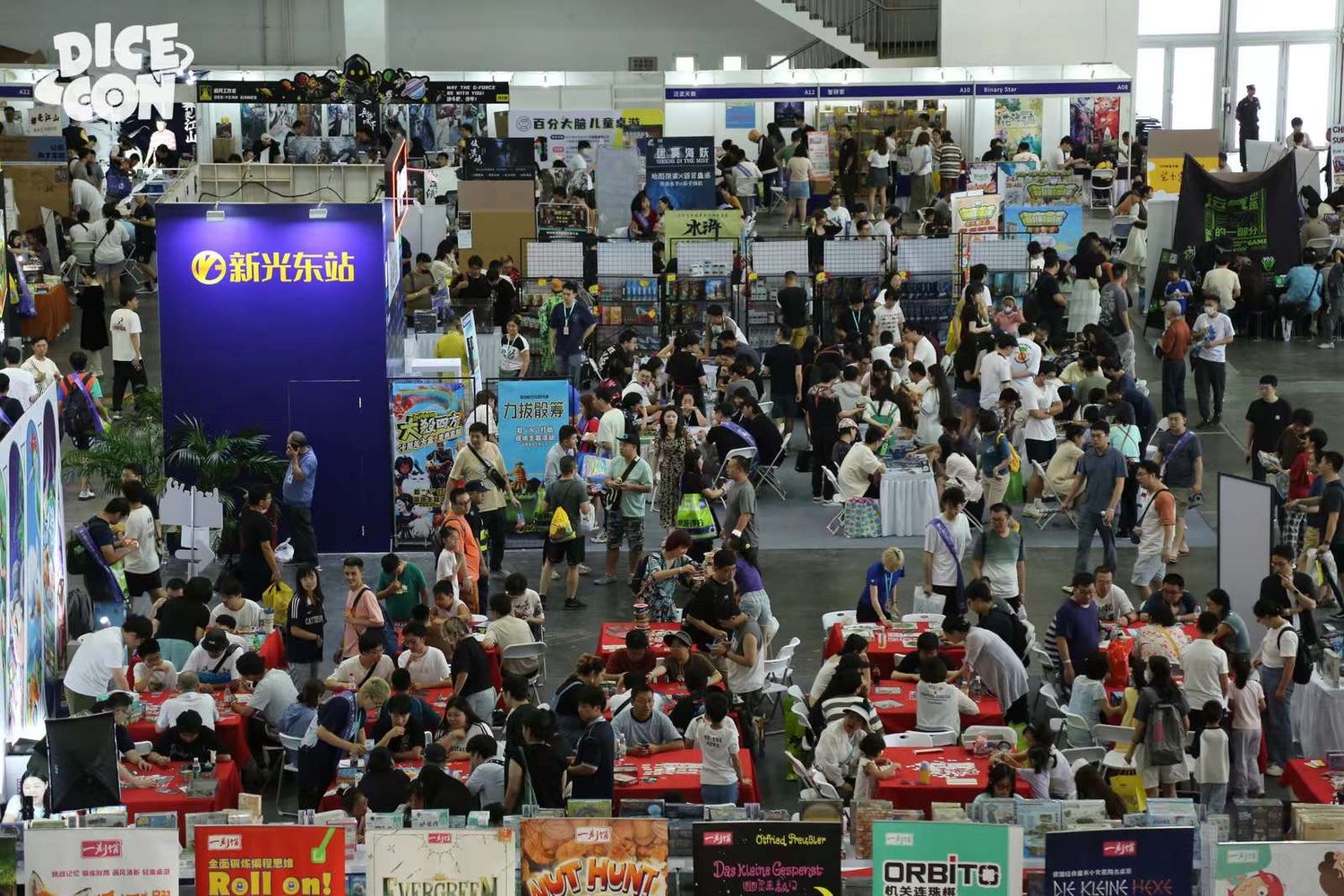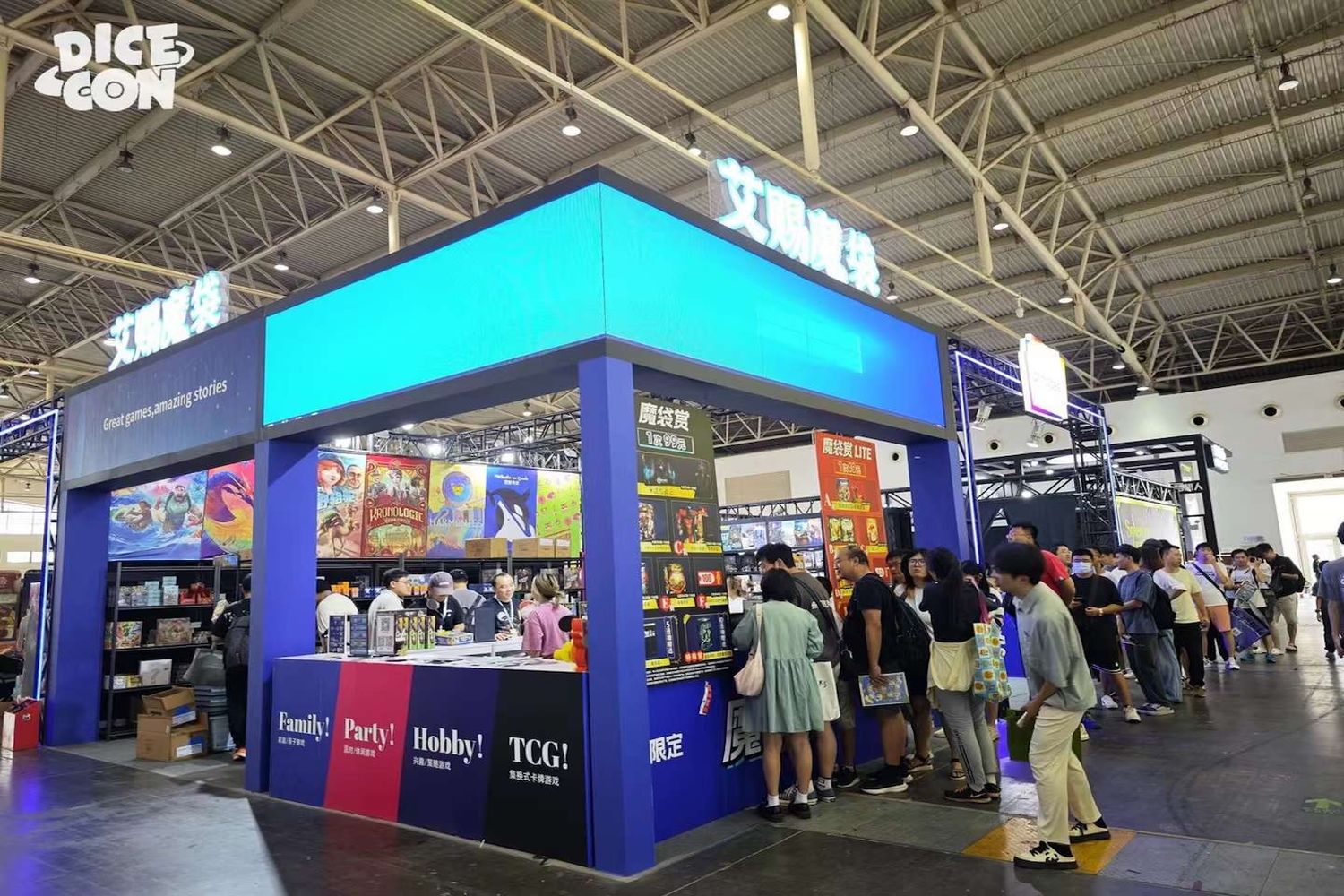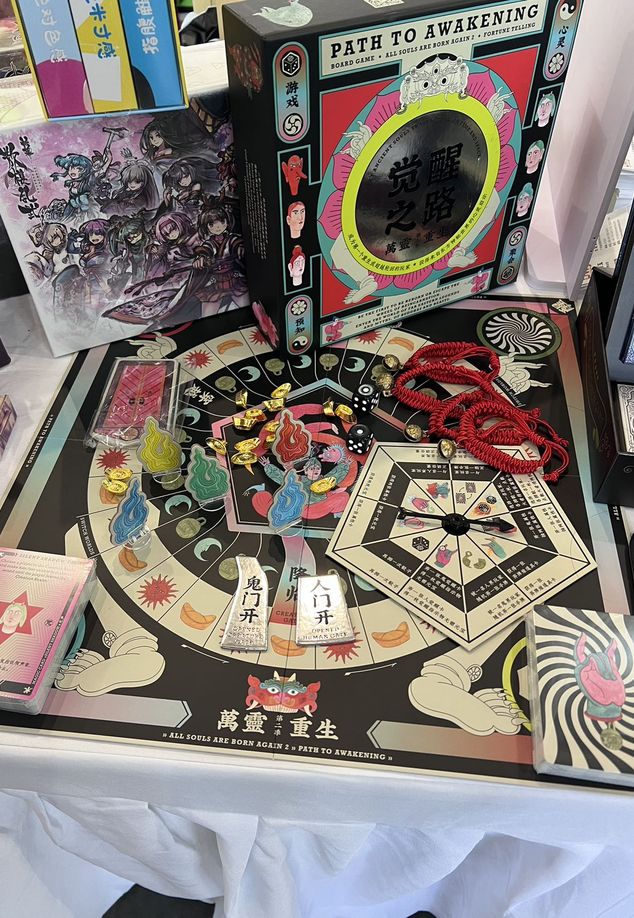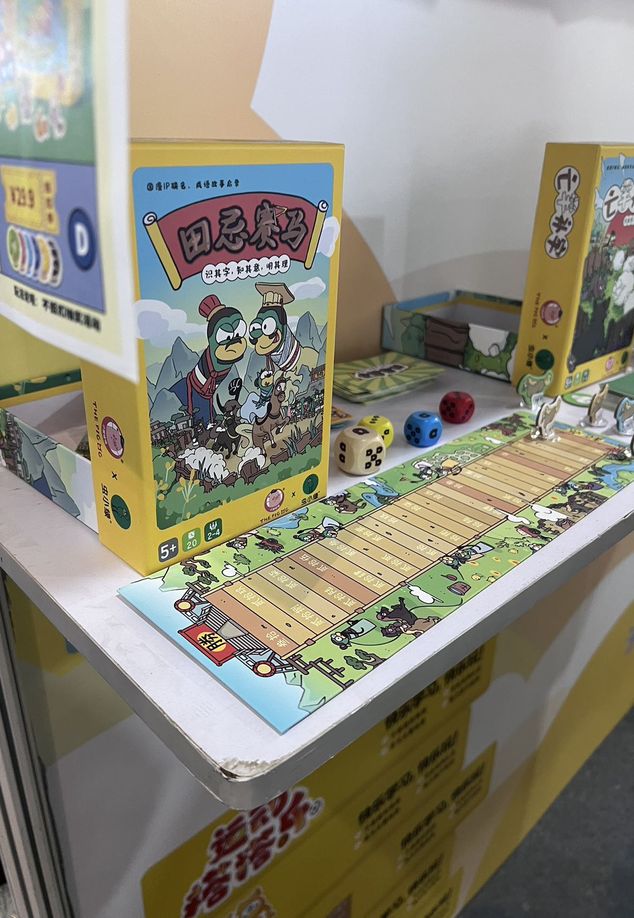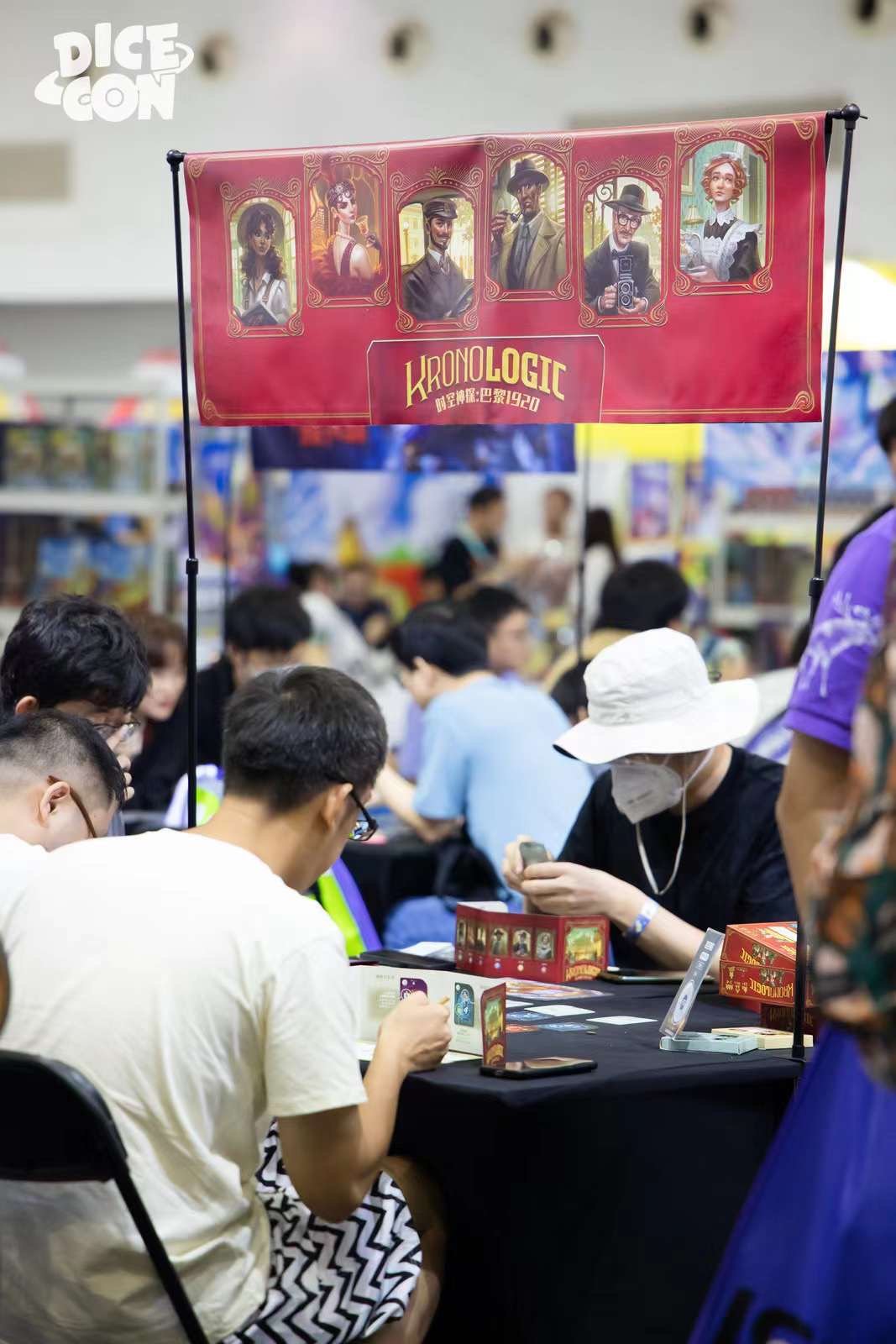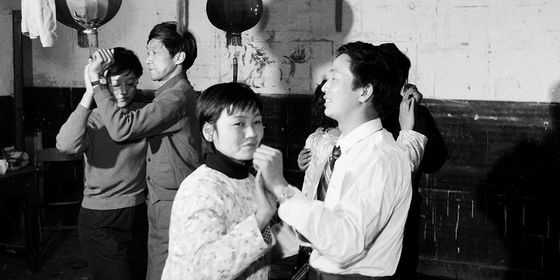Board games have supposedly been played in China for 4,000 years. But are local designers ready to take the industry to new heights?
Like ants sensing their way, the eager crowd instinctually headed for the single large hall at Beijing’s National Agricultural Exhibition Center. DICE CON 2024, China’s largest board game convention attended annually by more than 10,000 people, held its eighth or ninth edition since 2015 (depending on whether you count a scaled-down pandemic version in 2022) during a weekend in late August.
“Every year, DICE CON plans something different…highlighting the versatility and inclusiveness of board games,” reads the event’s official WeChat account.
Walking through, there was much to discover: 100 new games making their China release; the booths of global industry leaders, such as Asmodee and CMON; manufacturers large and small; indie designers, gaming tables, and sanctioned tournaments for Catan, Carcassonne, and other games. There was a secondhand board game trading service, a play area for children, the Board Game Education Forum—a series of talks on incorporating board games into pedagogy—and stalls catering to all niches: wargamers, table-top RPG players, collectible card game fans, and miniature-lovers.
A key component was the decade-old Golden Dice Board Game Awards, held by DICE, the company behind DICE CON. The winning and shortlisted games, voted by both the public and industry professionals, were displayed near the entrance. This year, an award for best Chinese game was added for the first time. This year also saw the second crowdfunded Asian Independent Board Game Design Week event, catering to smaller creators. Fun quest elements were brought back, with various activities resulting in “achievement card” points, encouraging wider exploration.
Learn more about gaming in China
- A Brief History of Chinese Video Game Consoles
- Inside China’s Game Boosting Economy
- What Video Games (Don’t) Teach Us About China
But the beating heart (or rather, center of gravity) was the “Universal Board Game Gravity” zone, another first, an area exploring the relevance of board games in society. As primary organizer and DICE CON founder Zhao Yongquan (Vincent) explains to TWOC, “Without people or environments, board games are just products sitting on a shelf, without meaning. So the question is, how do we connect with more diverse people, let them know about board games, play board games, and further engage in board game consumption?”
Sustainable development games (SDGs)—games that tackle environmental and social issues—were on display. Back in 2018, DICE CON invited Pakistani experiential designer Nashra Balagamwala to speak about her game “Arranged!”, in which players compete to avoid arranged marriages. The organization Diversability Lab also had a game highlighting accessibility efforts. There were informational displays, opportunities to play, and a number of related workshops.
Renren, a worker with Diversability Lab, demoed a card game she helped design called “How About You?” She tells TWOC that the collaboration with DICE CON came about as a happy accident of mutual friends with shared values. A curated selection of board games was also available to persons with different impairments.
The growth and diversification of DICE CON share much in common with the development of the industry at large. Archaeology points to deep gaming roots in China, with the board game Go, or weiqi (围棋), thought to originate at least 4,000 years ago. Evidence for another game, Liubo Chess (六博棋), stretches back 2,500 years, with qi (棋) being a catch-all term for chess-like games. Go was once one of the “four arts” of a Confucian scholar, the mastery of which was a sign of refinement, and continues to be a national pastime.
There are even claims that the standard deck of cards—and all card games in general—have their origins during the Tang dynasty, deriving from money-suited cards based on currency; not to mention the long history of mahjong. But the current tabletop gaming boom didn’t start until around 2007, eventually revolving around the three “sha” (杀, kill): sanguosha (三国杀, a Three Kingdoms card game), langrensha (狼人杀, the social deduction game Werewolf), and jubensha (剧本杀, script murders). Data from Intelligence Research Group shows a year-on-year market growth of 15 percent to 30 percent since 2016, totaling 23.8 billion yuan by 2022.
That doesn’t necessarily mean board games are going mainstream, however. In a 2024 talk at the International Game Developers Conference, researchers Wu Keyu and Yang Xinhui noted that “the first group of Chinese board game enthusiasts were mostly students with overseas experience.” In fact, the number of board game cafes is correlated to the number of universities in a given city. Surveying game store managers, the researchers estimated roughly 90 percent of clients were light gamers more interested in party games and socializing, with only 10 percent considered true board-gaming enthusiasts.
Light gamers gradually converting into enthusiasts was seen as the main pipeline to expanding the gamer base. Yet those hopes—and the noble ideals of DICE CON—mask deeper structural issues that may hamper future prospects.
These issues are the ones that DICE CON founder Zhao is only too aware of. The scene is still reliant on the outsized efforts of a small number of individuals and companies, which puts them under outsized pressure. Zhao wrote in a WeChat post prior to this year’s convention: “This is the first time I’ve ever wanted to give up on DICE CON halfway through.”
The community ultimately reignited his determination, but the problems persist. “The sales model has become rigid, relying solely on [online] Taobao stores and crowdfunding, with no one exploring other possibilities,” he tells TWOC. “Secondly, the growth rate of the player base is slow, also due to the rigidity of sales channels. Publishers only need to serve their existing player base, with little effort to attract new players.”
While praising the strong showing of polished domestic games, particularly this year, Zhao still feels Chinese games tend to be too complex, tackling the same few traditional themes and leaving little room for smaller, more creative approaches. “The main issue lies in the entrenched consumer groups and sales channels. In these channels, you’re scrutinized by experienced players, and even if you create a fun small-box card game, it won’t necessarily attract crowdfunding support.”
That doesn’t mean there aren’t publishers trying to buck this reality.
De Zonghao, who worked as a game editor before jumping into design a year ago, brought his game Song of the Nightingale, inspired by famous literary figures, to DICE CON. He is explicitly trying to appeal to those with no prior experience of board games.
“The ideal approach would probably be to maintain stable commercial development while exploring creative and stylistic innovations,” he tells TWOC. He is confident that whatever changes technology may bring, in-person interaction will still be universally desired.
And then there is Lin Yanzhu, the main force behind the Beijing-based board game label Sager Club (Racing Pigeon Club), who previewed several new titles at DICE CON 2024, including modern reinterpretations of Chinese drinking games. His philosophy, much like his games, is somewhat ethereal. “A game should make the players feel whatever it’s meant to evoke,” he tells TWOC. “Don’t approach game design with a didactic mindset. My creativity comes as a gift from above.”
As for what board games mean him, “they might represent a difficult path, but like many games, sometimes the most challenging ones are the most interesting,” Lin adds. “As for what they mean to society, how would I know?”
Despite this sentiment, Lin says it was friends who brought him into game-making, and it’s those interactions that sustain his creative impulse.
The community has always laid at the core of board gaming, implicit in the act of gathering at a table. DICE CON knows the future of the industry in China depends on these moments of friends getting together, in a physical space. In this sense, a healthy board game industry goes hand in hand with a healthy society.





